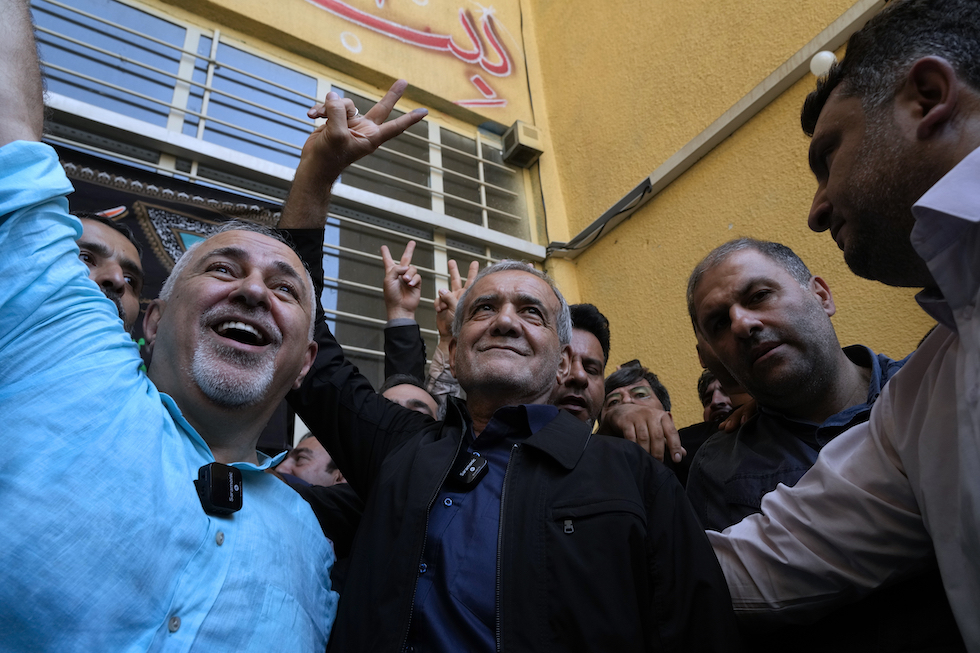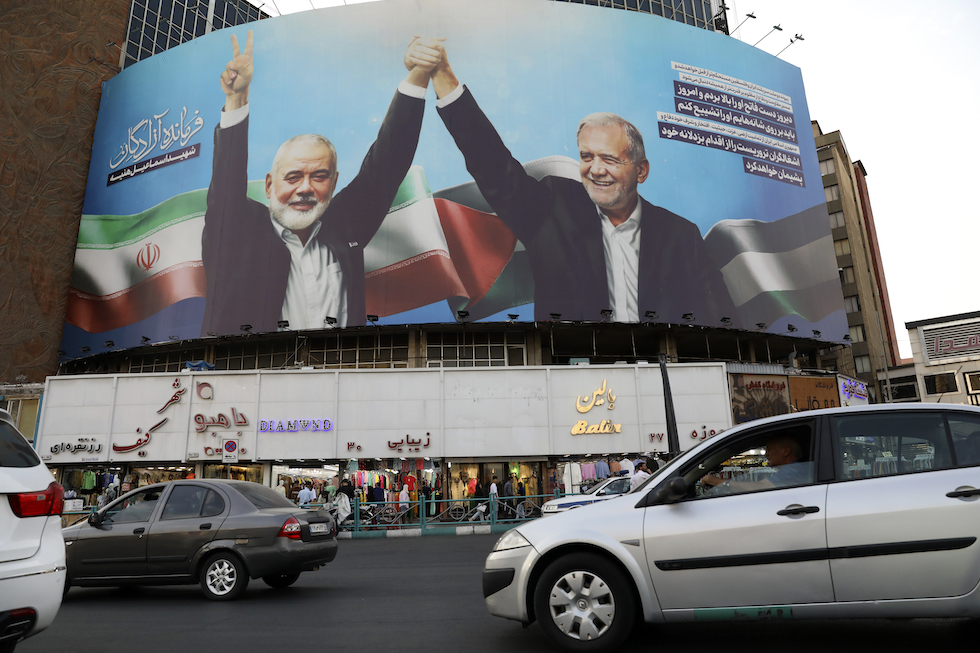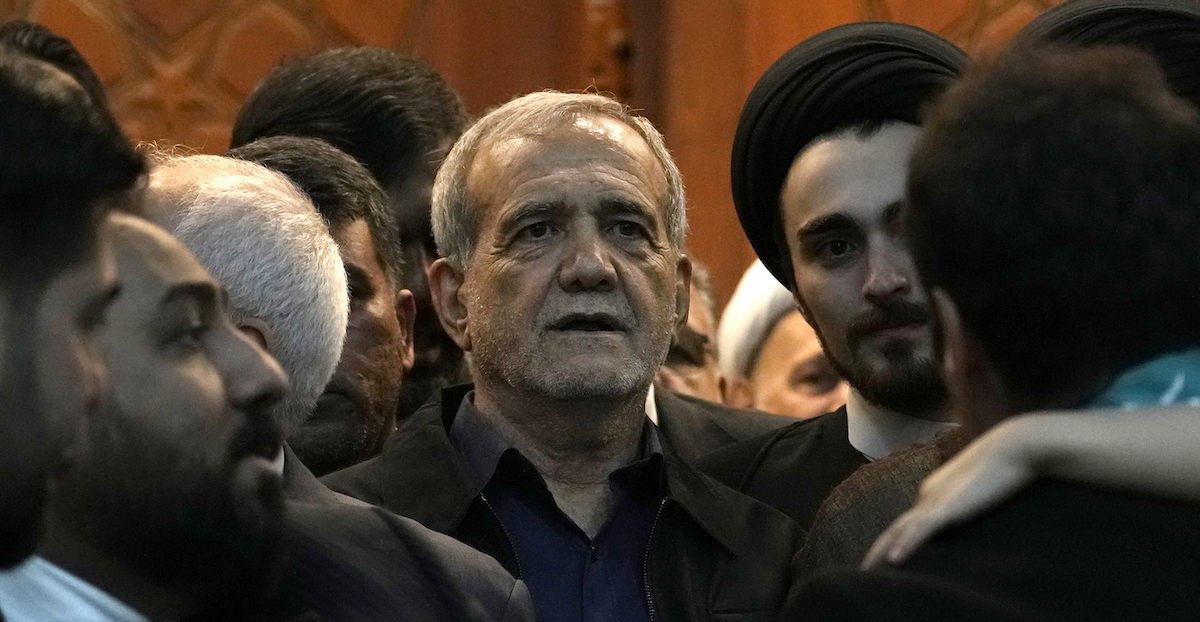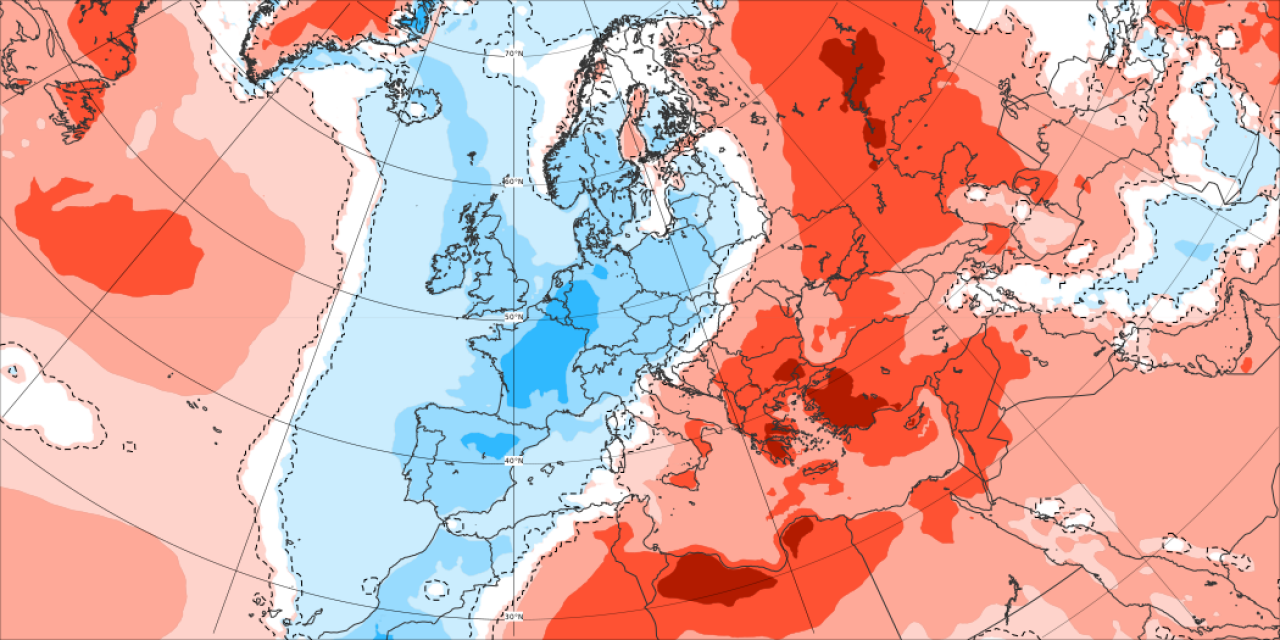Loading
After his surprise victory in Iran’s elections in early July, President Masoud Pezeshkian presented his government on Sunday. Pezeshkian is a reformist, meaning he is part of the more moderate and open current in the Iranian regime. That’s also why there has been high expectations for the new government, which Pezeshkian has proposed, but it still needs to be confirmed by parliament in the coming days.
Many hoped that it would include women, representatives of minorities and, above all, moderate politicians, more open to relations with the West and less aggressive than the governments of the past twenty years, led by conservatives (in Iran there are various political formations, but not real ones, and their own parties: almost all of them refer to three main intellectual currents, reformists, moderates and conservatives). Expectations were only half fulfilled, due to the very delicate situation in which Pezeshkian finds himself, both in Iran and in the context of the country's international relations.
Indeed, Pezeshkian chose a well-known moderate as foreign minister, and for the second time since the 1979 Islamic Revolution a woman was chosen for the post. At the same time, however, many members of the former executive branch remained in the government, even in important positions, and there was almost no inclusion of minorities. The disappointment was so great that Javad Zarif, the well-known and moderate former foreign minister, who supported Pezeshkian throughout the campaign and was instrumental in his victory, to resign From the position that the new president handed him just days ago, in protest against the formation of the new government.

Pezeshkian, center, on voting day in Iran, with former Foreign Minister Javad Zarif (left) (AP Photo/Vahid Salemi)
The problems facing Pezeshkian stem from the precarious situation his government finds itself in. Pezeshkian is a moderate and reformist who campaigned on promises to reduce the oppression of women, ease internet censorship and increase the representation of women, ethnic minorities and young people in government. But at the same time, the new president must maintain relations with Supreme Leader Ali Khamenei (the country’s main political and religious authority, whose influence exceeds that of the president himself), who has a very conservative orientation, and with a parliament that remains dominated by ultra-conservatives. However, the parliament still has to approve Pezeshkian’s appointments, and has the power to reject them: a vote on the appointments will be held on August 17.
Added to this is the international situation, which is extremely sensitive for Iran. Pezeshkian became president at a very critical moment: the day after his inauguration, Israel (most likely) killed Hamas political leader Ismail Haniyeh, while he was in Tehran for the inauguration of the new president. This (along with other Israeli killings and various provocations on both sides) caused great tension: an Iranian attack on Israel had been expected for days in response to Haniyeh’s killing.
This clearly complicates Pezeshkian's task of appointing a moderate government that favors greater international openness.

A large poster in Tehran shows Pezeshkian and Hamas political leader Ismail Haniyeh, who were likely killed by Israel. (AP Photo/Vahid Salemi)
The rival powers have reached what amounts to a grand compromise. Pezeshkian has appointed as foreign minister Abbas Araghchi, a veteran diplomat who was Iran’s chief negotiator during the 2015 nuclear deal with the West. That deal called for the removal of Western sanctions in exchange for greater international controls on Iran’s nuclear program. It was seen as a first step in Iran’s greater openness to the West, before President Donald Trump unilaterally withdrew the United States from the agreement in 2018, effectively scrapping it.
Abbas Araghchi is considered a moderate, a supporter of reopening relations with the West, which is why he has been ousted by the conservatives in power in recent years. Under his leadership, Iranian foreign policy could be more open, but much will depend on how the critical situation with Israel is resolved, if it is resolved.
Pezeshkian also appointed Farzaneh Sadegh, a well-known architect, as Minister of Roads and Urban Planning: Iran's second female minister since 1979 (the first was Health Minister Marzieh Vahid Dastjerdi in 2009).
At the same time, however, Sunni Muslims (a minority in Iran) are not included in the government, there are very few young people, and even the presence of moderates like Araghchi is tempered by the fact that many of the ministers are elderly and the hardline conservative government has maintained its position, even in very important positions like the intelligence ministry. Even the head of Iran’s atomic agency, which runs the nuclear program and has a say in any new negotiations with the West, has remained unchanged.

“Reader. Travel maven. Student. Passionate tv junkie. Internet ninja. Twitter advocate. Web nerd. Bacon buff.”




